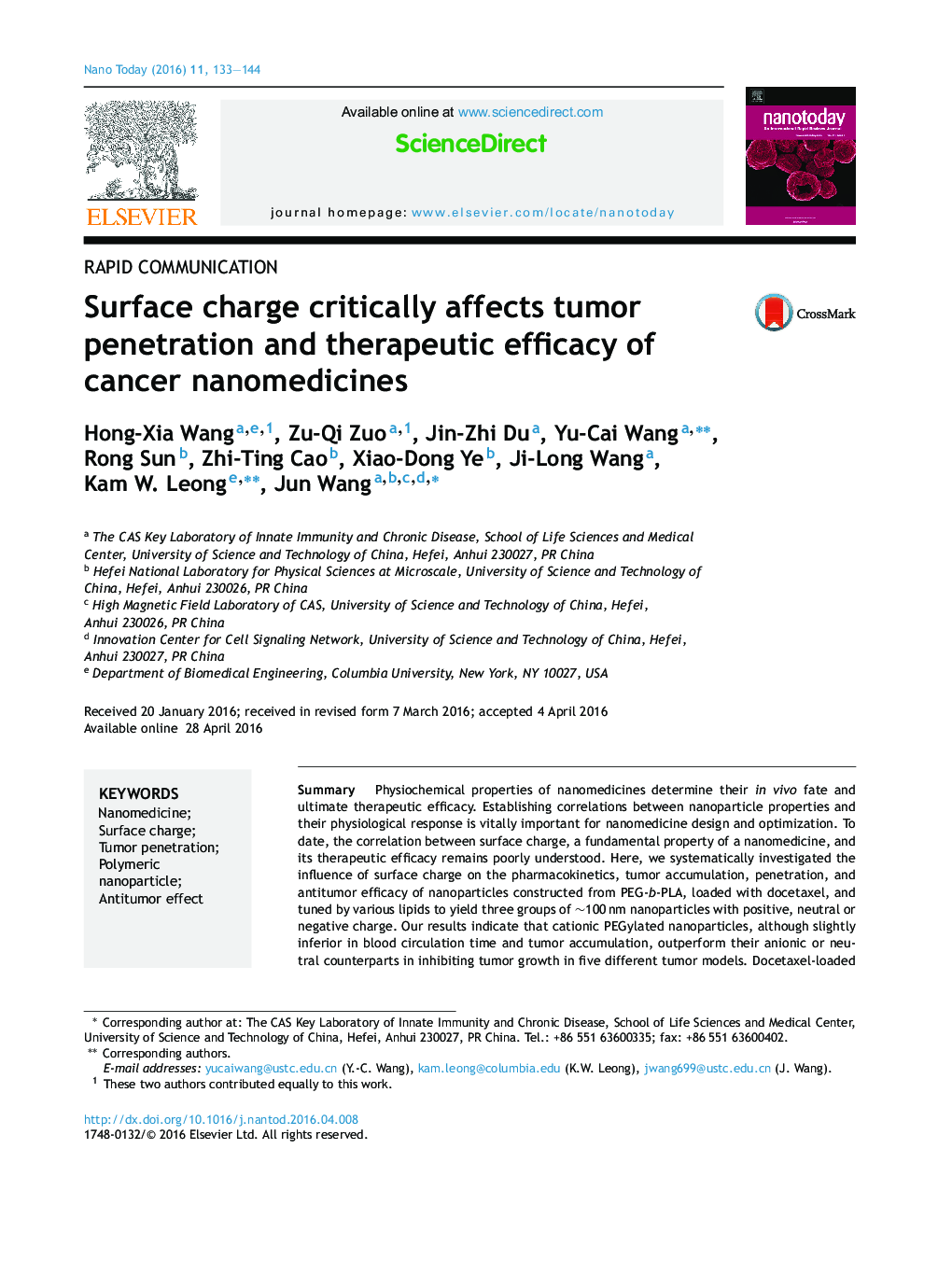| کد مقاله | کد نشریه | سال انتشار | مقاله انگلیسی | نسخه تمام متن |
|---|---|---|---|---|
| 32043 | 44892 | 2016 | 12 صفحه PDF | دانلود رایگان |
• Positively charged PEGylated nanomedicines exhibit shorter blood circulation and lower tumor accumulation than their neutral and anionic counterparts.
• Positively charged PEGylated nanomedicines exhibit superior extravasation and penetration in tumors.
• Positively charged PEGylated nanomedicines show higher cellular uptake in disaggregated tumors.
• Positively charged PEGylated nanomedicines exhibit enhanced antitumour efficacy in a variety of tumor models.
SummaryPhysiochemical properties of nanomedicines determine their in vivo fate and ultimate therapeutic efficacy. Establishing correlations between nanoparticle properties and their physiological response is vitally important for nanomedicine design and optimization. To date, the correlation between surface charge, a fundamental property of a nanomedicine, and its therapeutic efficacy remains poorly understood. Here, we systematically investigated the influence of surface charge on the pharmacokinetics, tumor accumulation, penetration, and antitumor efficacy of nanoparticles constructed from PEG-b-PLA, loaded with docetaxel, and tuned by various lipids to yield three groups of ∼100 nm nanoparticles with positive, neutral or negative charge. Our results indicate that cationic PEGylated nanoparticles, although slightly inferior in blood circulation time and tumor accumulation, outperform their anionic or neutral counterparts in inhibiting tumor growth in five different tumor models. Docetaxel-loaded cationic nanoparticles significantly suppressed tumor growth with an inhibition ratio of ∼90%, compared with the ∼60% achieved by their anionic or neutral counterparts. Further studies reveal that better tumor penetration and 2.5-fold higher cellular uptake of cationic PEGylated nanoparticles is responsible for their superior treatment efficacy. This fundamental study provides a foundation for engineering the next generation of nano-delivery systems for in vivo applications.
Figure optionsDownload high-quality image (229 K)Download as PowerPoint slide
Journal: - Volume 11, Issue 2, April 2016, Pages 133–144
